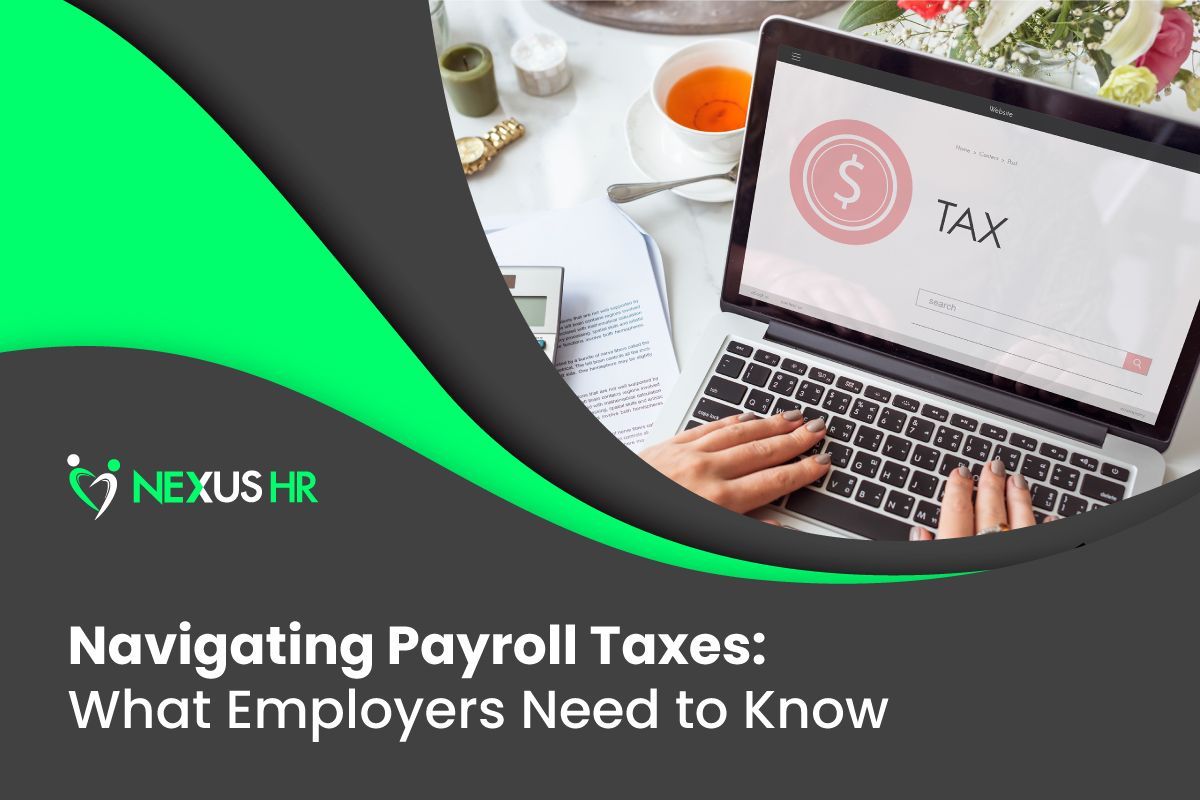Get in touch
877-922-5867
Info@Nexushr.com
877-922-5867
Remote Work's Impact on Employees' Mental Well-Being
Despite many organizations’ push to get everyone back to brick and mortar through return-to-office orders, remote work is still going strong.
In fact, according to the
State of Remote Work 2022 report, 78% of employees preferred a remote or
hybrid work arrangement, and 52% were willing to take a pay cut for the option to work remotely.
Among those already working in a remote or hybrid setup, if the ability to work from home (WFH) was taken away, 66% would immediately start looking for a job that offered flexibility, and 39% would simply quit.
But is remote work as effective and sustainable as we think it is? Some studies show it isn’t.
Read More:
In-Office, Remote, or Hybrid Work: Which One is Best?
Is Working from Home Bad for Mental Health?

Well, it depends.
Since the COVID-19 pandemic reshaped the global workforce and accelerated the widespread adoption of remote work, employees and employers have found themselves navigating a new paradigm in professional engagement.
The steady shift from traditional office settings to decentralized home offices has introduced many opportunities and challenges. Here are some of them:
Remote Work & Mental Health: The Pros
- Work-Life Balance. The State of Remote Work 2023 reveals that 45% of employees find it easier to create work-life boundaries when working remotely. By allowing for greater flexibility in work hours, individuals can better balance professional and personal commitments.
- Flexibility. When survey participants were asked what the biggest benefit of the work-from-anywhere arrangement was, “Flexibility in how I spend my time” (unsurprisingly) remains the top answer. Without the constraints and limitations of a physical office, workers can arrange their daily schedules to best suit their individual preferences and needs.
- Productivity. Many employees admit to being more productive when away from office distractions and interruptions. A survey by Microsoft found that 87% of employees found themselves more productive when they were able to work remotely at least some of the time.
- Cost and Time Savings. According to a survey by Global Workplace Analytics, employees save the following every year by working at home half the time:
- Between $600 and $6,000 in expenses
- Equivalent to 11 working days in time otherwise spent commuting
Read More:
How to Tackle Employee Benefits for Remote Workers
Remote Work & Mental Health: The Cons
- Isolation and Loneliness. According to the State of Remote Work 2023 report, 23% of remote workers struggle with loneliness due to the lack of in-person social interactions with colleagues. The 2023 Workforce Special Report shows that 73% of middle market executives’ workers felt isolated.
- Stress, Anxiety, and Depression. Multiple studies worldwide found that remote workers experienced poorer sleep quality, had more issues with relaxation, felt more significant irritability, and experienced more tension than their in-office counterparts. This suggests that as an effect of the pandemic-accelerated shift to the work-from-home setup, depression, stress, and anxiety prevalence have increased.
- Communication Challenges. “In addition to the technological challenges, communication in remote and hybrid teams can be complicated by the fact that some people are more comfortable speaking up over screens than others,” said Dr. Martine Haas, Lauder Chair Professor of Management at the Wharton School. “And that’s in addition to the power, status, and language differences that already create barriers to communication in work settings.”
- Blurred Boundaries. The State of Remote Work 2023 reveals that 22% of remote workers struggle with not being able to unplug from their work. Difficulty in establishing clear boundaries between work and personal life can result in overworking and burnout.
Read More:
How to Support Your Employees' Mental Health
Working from Home: Mental Health Tips for Your Team

While the work-from-anywhere arrangement sounds like the ultimate solution to workforce flexibility and convenience, it comes with its own set of challenges. If you want your organization to experience the full benefits of remote work, you must prioritize your team’s mental health.
Here are a few ways you and your remote employees can take care of their mental health from the adverse effects of work-from-home life:
Establish a Routine
The United Kingdom National Health Service strongly recommends setting consistent work hours and establishing a daily routine to create a clear boundary between work and personal time.
- Wake up at the same time every day.
- Get out of your pajamas.
- Eat breakfast.
- Use what would have been your commute time to exercise, read, or listen to music.
- Work the same number of hours that you would if you were in the office.
- When the workday ends, shut down your computer and stop checking emails.
- Focus on your home life.
- At the end of the day, go to sleep at your usual time.
Setting a steady schedule and sticking to it helps you maintain a healthy work-life balance and avoid blurred boundaries, which can result in stress, overworking, and burnout.
Create a Dedicated Workspace
Designate a specific and comfortable area for work to enhance focus and reinforce your work-life boundaries. According to tech news and job platform Built In, a home office makes it easier to mimic walking into an office where you must leave personal matters behind and focus on work tasks.
In her book
Working from Home: Making the New Normal Work for You, internationally recognized thought leader
Karen Mangia advocates for work-life segmentation through a dedicated workspace, even if you don’t have a dedicated office.
“When you’re working from home, [work is] always there. Always available. It’s unhealthy if you’re always peering into your work pantry,” Karen writes. “When work is always on and always available, it’s vital that you create some healthy segmentation.”
Take a Break from Work
Schedule short breaks throughout the day to stretch, move away from your desk, and refresh your mind. This helps prevent burnout and maintains productivity.
Unfortunately, browsing the internet or managing personal items on your computer doesn’t count. According to collaboration software company
Lucidchart, not every type of break is productive. When it comes to working remotely, it’s important that you’re flexible about the kind of breaks you need throughout your day.
Lucidchart recommends doing the following activities during your work-from-home breaks instead—just make sure you step away from your desk while you do them:
- Exercise
- Meditate
- Talk to a friend
- Explore productivity hacks
- Do something you enjoy
Also, remember to use your time-off benefits. Just because you don’t travel to the office daily doesn’t mean you don’t need a vacation now and then.
Read More:
How to Manage Time-Off Requests Like a (Good) Boss
Stay Connected
Even if you’ve already set a work-from-home routine, getting actual human interaction is vital to your well-being. Here are a few ways you can do that:
- If you’re updating a colleague about a project, try scheduling a video call or picking up the phone instead of emailing.
- Schedule regular virtual catch-up meetings with your teammates.
- If you have colleagues living in the same city, consider organizing a coworking session at a local cafe.
- Look into doing virtual team-building activities with fellow WFH employees.
Actively engaging and maintaining social connections are crucial to combating feelings of loneliness and isolation.
Prioritize Self-Care
Self-care is the intentional actions and practices individuals undertake to preserve or improve their physical, mental, and emotional well-being. It involves recognizing one's needs and taking steps to address them in a positive and nurturing way.
If you or your team work from home, make time for activities you enjoy, practice mindfulness, and ensure a healthy work-life balance. The
U.S. National Institute of Mental Health
recommends the following ways to practice self-care:
- Get regular exercise.
- Eat healthy, regular meals and stay hydrated.
- Make sure you get enough sleep.
- Make time for relaxing activities like meditation and journaling.
- Set goals and priorities.
- Remind yourself daily of things you’re grateful for.
- Focus on positivity.
- Reach out to friends or family who can offer support.
By helping you manage stress, lowering your risk of illness, and increasing your energy, self-care proves to be essential to achieving long-term success in remote work.
Read More:
Tips for Managing Remote Employees
Make Remote Work Really Work for Your Team With Nexus HR

Remote work is a growing reality for organizations all over the world—and it looks like it isn’t going away anytime soon.
However, remote work isn't a plug-and-play solution. It requires careful planning, clear communication, and proactive strategies to ensure work effectiveness and employee well-being. As a company leader who oversees various teams and projects, you may not have the time, energy, or brain space to get these done—unless you have a
tried-and-tested HR solutions company that can help you!
Whether you need HR specialists to handle admin paperwork, a team to manage your company
payroll, or
Certified QuickBooks Proadvisors to take care of your finances, Nexus HR has what you need!
By partnering with an established HR solutions company, you can leave the busy work to us and focus on what really matters—growing your business while caring for your staff.











